第49章 VIII(5)
It was shortly after this encounter that I had two traveling experiences which nearly cost me my life. One of them occurred in Ohio at the time of a spring freshet. I know of no state that can cover itself with water as completely as Ohio can, and for no apparent reason. On this occasion it was break- i ng its own record. We had driven twenty miles across country in a buggy which was barely out of the water, and behind horses that at times were almost forced to swim, and when we got near the town where I was to lecture, though still on the opposite side of the river from it, we discovered that the bridge was gone. We had a good view of the town, situated high and dry on a steep bank; but the river which rolled between us and that town was a roaring, boiling stream, and the only possible way to cross it, I found, was to walk over a railroad trestle, already trembling under the force of the water.
There were hundreds of men on the river-bank watching the flood, and when they saw me start out on the empty trestle they set up a cheer that nearly threw me off. The river was wide and the ties far apart, and the roar of the stream below was far from reassuring; but in some way I reached the other side, and was there helped off the trestle by what the newspapers called ``strong and willing hands.''
Another time, in a desperate resolve to meet a lecture engagement, I walked across the railroad trestle at Elmira, New York, and when I was half- w ay over I heard shouts of warning to turn back, as a train was coming. The trestle was very high at that point, and I realized that if I turned and faced an oncoming train I would undoubtedly lose my nerve and fall. So I kept on, as rapidly as I could, accompanied by the shrieks of those who objected to witnessing a violent death, and I reached the end of the trestle just as an express-train thundered on the beginning of it. The next instant a policeman had me by the shoulders and was shaking me as if I had been a bad child.
``If you ever do such a thing again,'' he thundered, ``I'll lock you up!''
As soon as I could speak I assured him fervently that I never would; one such experience was all I d esired.
Occasionally a flash of humor, conscious or un- c onscious, lit up the gloom of a trying situation.
Thus, in Parkersburg, West Virginia, the train I w as on ran into a coal-car. I was sitting in a sleep- e r, leaning back comfortably with my feet on the seat in front of me, and the force of the collision lifted me up, turned me completely over, and deposited me, head first, two seats beyond. On every side I h eard cries and the crash of human bodies against unyielding substances as my fellow-passengers flew through the air, while high and clear above the tumult rang the voice of the conductor:
``Keep your seats!'' he yelled. ``KEEP YOUR SEATS!''
Nobody in our car was seriously hurt; but, so great is the power of vested authority, no one smiled over that order but me.
Many times my medical experience was useful.
Once I was on a train which ran into a buggy and killed the woman in it. Her little daughter, who was with her, was badly hurt, and when the train had stopped the crew lifted the dead woman and the injured child on board, to take them to the next station. As I was the only doctor among the pas- s engers, the child was turned over to me. I made up a bed on the seats and put the little patient there, but no woman in the car was able to assist me. The tragedy had made them hysterical, and on every side they were weeping and nerveless. The men were willing but inefficient, with the exception of one un- c outh woodsman whose trousers were tucked into his boots and whose hands were phenomenally big and awkward. But they were also very gentle, as I realized when he began to help me. I knew at once that he was the man I needed, notwithstanding his unkempt hair, his general ungainliness, the hat he wore on the back of his head, and the pink carnation in his buttonhole, which, by its very in- c ongruity, added the final accent to his unprepossess- i ng appearance. Together we worked over the child, making it as comfortable as we could. It was hard- l y necessary to tell my aide what I wanted done; h e seemed to know and even to anticipate my efforts.
When we reached the next station the dead woman was taken out and laid on the platform, and a nurse and doctor who had been telegraphed for were wait- i ng to care for the little girl. She was conscious by this time, and with the most exquisite gentleness my rustic Bayard lifted her in his arms to carry her off the train. Quite unnecessarily I motioned to him not to let her see her dead mother. He was not the sort who needed that warning; he had already turned her face to his shoulder, and, with head bent low above her, was safely skirting the spot where the long, covered figure lay.
Evidently the station was his destination, too, for he remained there; but just as the train pulled out he came hurrying to my window, took the car- n ation from his buttonhole, and without a word handed it to me. And after the tragic hour in which I had learned to know him the crushed flower, from that man, seemed the best fee I had ever received.